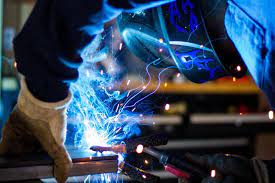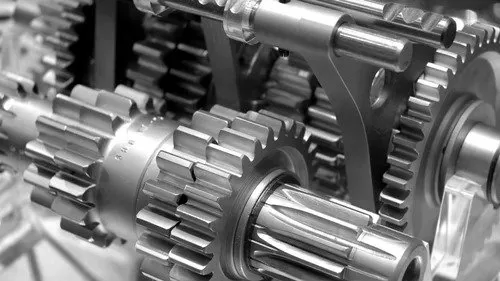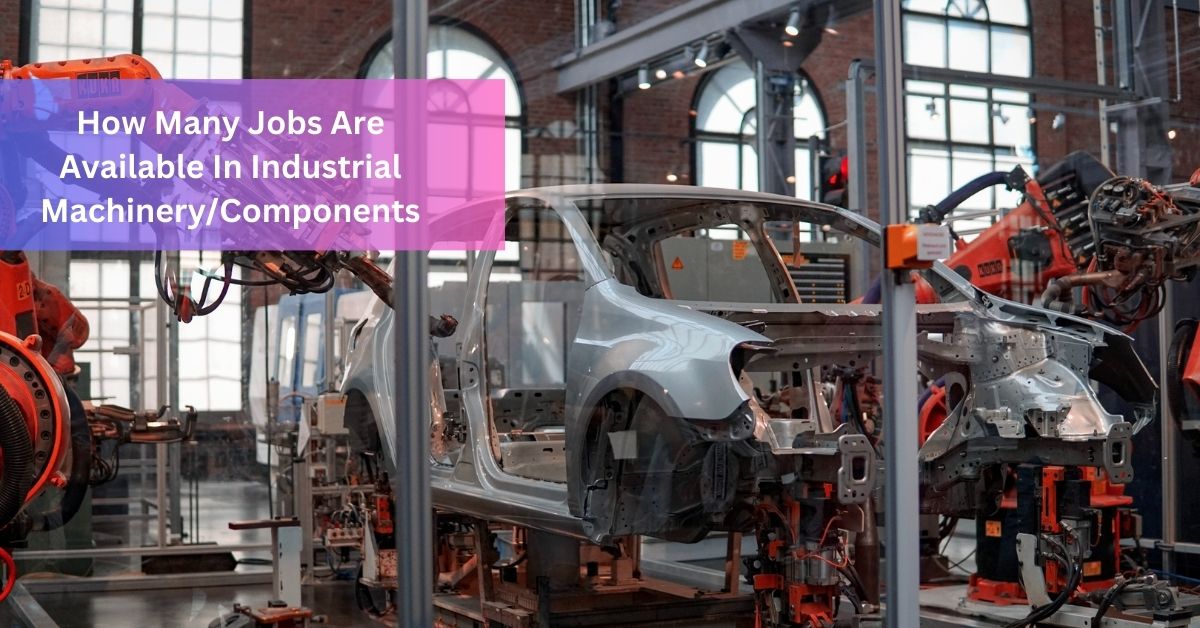How Many Jobs Are Available In Industrial Machinery/Components
Discover how many jobs are currently available in this dynamic industry. Explore the diverse career options and potential roles waiting for skilled professionals.
The number of industrial machinery and components jobs varies depending on location, industry demand, and economic conditions. It’s best to check online job portals to find specific job opportunities.
Dive into the world of industrial machinery and components careers – unravel the exciting possibilities and discover just how many opportunities await your skill set in this thriving industry!
What Is Industrial Machinery/Components? – Click To Gain Knowledge!
In industrial manufacturing, various parts are essential to ensure machines function correctly. Each component must meet high-quality standards to ensure optimal efficiency and cost-effectiveness in production.
Because of this and the overall increase in global industrial production, there are many different types of jobs in the industrial machinery and components sector. These include office jobs like engineering and hands-on jobs like crane operators.
Because computer technology plays a significant role in today’s manufacturing, people with computer skills can boost their careers in the industrial machinery industry.
How Many Jobs Are Available In Industrial Machinery/Components? – Dive Into The Information!

Because of new ideas and technology, the industrial machinery components field keeps changing. By 2031, the U.S.
Bureau of Labor Statistics predicts a 14% job increase, with 53,200 openings yearly. Many of these jobs will come up as people switch careers or retire.
In the industrial machinery components industry, many jobs have many people working in them. Here are the top 5 roles with the most job opportunities:
- Team assemblers: 129,480 positions
- Welders, brazers, cutters, and solderers: 66,370 positions
- Machinists: 65,490 positions
- Mechanical engineers: 40,830 positions
- Computer-controlled machine tool operators: 31,950 positions
What Is The Pay Of Industrial Machinery/Components Employe? – Click To Gain Knowledge!
In the industrial machinery components industry, lots of jobs offer higher-than-average pay. Based on data from the BLS, the average salary for all jobs in this industry is $58,380, slightly above the national average for all professions in the U.S.
Some of the highest-paying jobs in this field include millwrights, earning an average of $60,330 per year, and industrial machinery mechanics, with an average salary of $59,840 annually.
Is The Industrial Machinery/Components Considered To Be A Good Career? Let’s Explore!
Absolutely! Careers in manufacturing industrial machinery and its parts often come with good pay.
Alongside a decent salary, employees may also enjoy benefits like health insurance, retirement plans, and extra incentives offered by certain companies.
Careers in the growing industrial machinery and components field often come with higher-than-average pay and comprehensive health benefits, which may include vision and dental coverage, among others.
When we look closer, it’s evident that salaries have generally risen across various professions over time.
Industrial engineers, in particular, have experienced significant wage growth compared to other fields.
On average, their starting salary was $88,500 and is expected to increase to $95,000 in 2021. This represents a profit increase of over 1.7% between 2020 and 2021.
What Are The Eligibility Criteria For Industrial Machinery/Components? – Get Informed!

The industrial machinery component industry is a big part of manufacturing. It makes many parts using machines in industrial settings.
Getting a job in this industry might be challenging if you need to know what qualifications you need.
Usually, employers want to see a high school diploma or something similar. But sometimes they’ll consider you if you have relevant work experience.
Businesses are looking for workers who know their way around machinery and understand safety rules well.
Along with these skills, being self-motivated and good at following directions is essential for anyone interested in working in this field.
Pros And Cons Of Working In Industrial Machinery/Components – Here To Know!
Before deciding if a career in industrial machinery components is right for you, it’s essential to consider its advantages and disadvantages.
While it may be an excellent fit for some, others may find it doesn’t align with their interests or needs. Explore the following list of pros and cons to help you make an informed decision about pursuing a career in this field:
Pros:
- Lots Of Job Options: The industrial machinery components field offers various roles, like engineering and design jobs.
- Industry On The Rise: With a rising demand for industrial machinery components workers, your chances of finding a job increase, ensuring stability.
- Good Pay: Many jobs in this field pay more than the national average in America, offering high-paying positions that suit different financial goals.
Cons:
- High-Risk Work Environment: Working in industrial settings can be risky, as it often involves handling heavy machinery and harmful substances. Despite these dangers, strict safety regulations are in place, such as wearing protective gear, to reduce the risk of injuries and ensure the well-being of workers.
- Most Roles Require Extensive Training: Since jobs in the industrial machinery industry involve working with complex machinery and tools, new employees are usually required to undergo industry training. Luckily, many employers offer free training programs to help new hires get started.
- Tasks Can Effortful: In industrial machinery jobs, you might need to handle heavy, tiring equipment. However, many positions offer benefits like weekends off, paid sick leave, and spent vacation time to compensate for the effortful tasks.
Frequently Asked Questions:
1. What Qualifications Do I Need For A Career In Industrial Machinery/Components?
Qualifications may vary depending on the specific role, but a degree in engineering, business, or a related field is often preferred. Additionally, relevant experience and technical skills are highly valued by employers.
2. Are There Opportunities For Career Advancement In This Industry?
Absolutely! The industrial machinery and components sector offers ample opportunities for professional growth and advancement, possibly moving into leadership roles or exploring specialized areas of expertise.
3. In what industries do professionals in industrial machinery/components work?
Professionals in this field find employment across a wide range of industries, including manufacturing, automotive, aerospace, energy, and construction, among others.
4. How Can I Stay Updated On Job Openings In Industrial Machinery/Components?
Stay connected with industry associations, job boards, and professional networking platforms to stay informed about the latest job opportunities and trends in the field.
Conclusion:
The industrial machinery and components sector presents an exciting landscape with career growth, innovation, and success opportunities. With a diverse range of roles spanning engineering, manufacturing, sales, and management, there’s something for everyone in this dynamic industry.
Embrace the possibilities, unleash your potential, and embark on a rewarding industrial machinery and components career today!
Read More:






